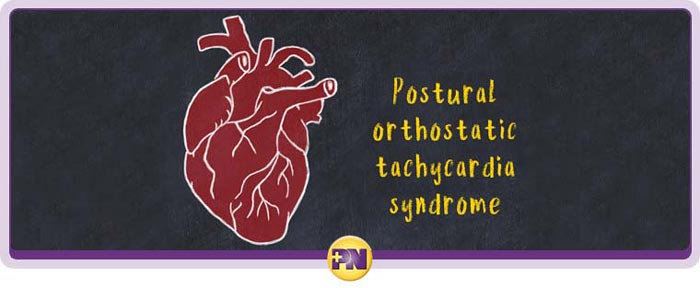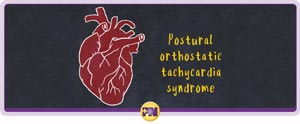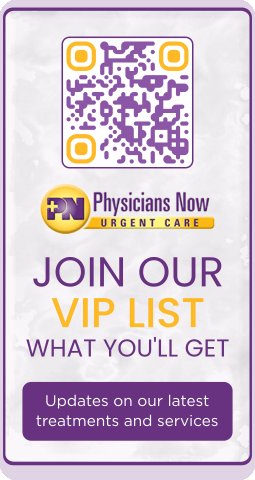POTS Specialist in Rockville, MD
POTS (Postural Orthostatic Tachycardia Syndrome) is a condition that affects the autonomic nervous system, causing symptoms like dizziness, fatigue, and heart palpitations. Physicians Now Urgent Care offers specialized care for POTS patients. Led by Dr. Chinedum Olisemeka, DO, our clinic provides comprehensive treatment plans to manage symptoms and improve your quality of life. We work closely with you to develop personalized strategies that help you effectively manage POTS and enhance your overall well-being. Contact us today for more information. Our urgent care is conveniently located at 15215 Shady Grove Rd., Suite 100, Rockville, MD 20850.




Table of Contents:
What is POTS syndrome?
What are the signs of POTS?
Who can diagnose POTS syndrome?
What treatment is available for POTS syndrome?
POTS (Postural Orthostatic Tachycardia Syndrome) is a condition that affects the autonomic nervous system, leading to an abnormal increase in heart rate when standing up. This can cause symptoms such as dizziness, lightheadedness, fatigue, heart palpitations, and, in some cases, fainting. The condition occurs when the body has difficulty regulating blood flow and blood pressure, particularly upon standing.
The exact cause of POTS is still not fully understood, but it may be related to factors such as autoimmune conditions, dehydration, blood volume issues, or prior viral infections. Individuals with POTS often experience a reduced quality of life due to the chronic nature of symptoms, which can interfere with daily activities.
At Physicians Now Urgent Care in Rockville, MD, Dr. Chinedum Olisemeka, DO, provides expert care and personalized treatment for POTS syndrome to help manage symptoms and improve overall well-being. Dr. Olisemeka works closely with patients to develop individualized care plans that focus on symptom management, lifestyle modifications, and medication options. With a comprehensive approach, patients can better understand and manage their condition, leading to improved daily function and a better quality of life.
Postural Orthostatic Tachycardia Syndrome (POTS) is characterized by a variety of symptoms, primarily related to blood flow and heart rate regulation when standing up. These symptoms can vary in severity and duration, making it important to recognize the signs for early diagnosis and management. Below are common symptoms that individuals with POTS may experience:
• Dizziness or Lightheadedness: Feeling faint or lightheaded when standing up due to a rapid increase in heart rate.
• Heart Palpitations: A noticeable increase in heart rate or irregular heartbeats when standing or changing positions.
• Fatigue: Persistent tiredness, often debilitating, that doesn’t improve with rest.
• Nausea: A sensation of queasiness, sometimes accompanied by vomiting.
• Fainting: In some cases, POTS can lead to fainting, especially when standing for prolonged periods.
• Exercise Intolerance: Difficulty exercising or increased symptoms after physical activity due to poor blood circulation.
• Shakiness or Tremors: A feeling of weakness or trembling, especially after standing up.
• Headaches: Frequent headaches or migraines due to changes in blood flow.
• Sweating Abnormalities: Either excessive sweating or reduced sweating when in certain positions.
If you’re experiencing these symptoms, it’s crucial to seek medical attention to rule out other conditions and get an accurate diagnosis. At Physicians Now Urgent Care in Rockville, MD, Dr. Chinedum Olisemeka, DO, is experienced in diagnosing and treating POTS, providing patients with personalized care to help manage these symptoms effectively.
POTS syndrome can be diagnosed by a healthcare provider who specializes in autonomic disorders, such as a neurologist, cardiologist, or general physician with experience in managing this condition. The diagnostic process typically begins with a thorough medical history and physical examination, followed by tests like the tilt table test, which measures how the body responds to changes in posture.
In some cases, additional tests such as blood tests, heart rate monitoring, and blood pressure assessments are used to rule out other conditions with similar symptoms. A proper diagnosis is crucial for developing an effective treatment plan, as POTS can often mimic other conditions like chronic fatigue syndrome or anxiety disorders.
Dr. Chinedum Olisemeka, DO, at Physicians Now Urgent Care in Rockville, MD, is experienced in diagnosing and treating POTS, ensuring that patients receive the correct diagnosis and a personalized treatment approach for managing their symptoms.
Treatment for POTS (Postural Orthostatic Tachycardia Syndrome) typically begins with lifestyle modifications aimed at improving blood flow and circulation. Patients are often advised to increase their fluid and salt intake, as this can help expand blood volume and prevent dizziness upon standing. Compression garments, such as stockings, are also commonly recommended to support blood vessels and promote better circulation, especially in the lower body. Additionally, elevating the head of the bed and engaging in regular cardiovascular exercises can improve overall circulation and help manage symptoms.
Medications may be used to treat specific symptoms of POTS, such as tachycardia (increased heart rate), dizziness, and low blood pressure. These medications are tailored to each patient’s needs and health history to achieve optimal symptom management. In some cases, additional treatments may be used to address symptoms like nausea, fatigue, and headaches.
At Physicians Now Urgent Care in Rockville, MD, Dr. Chinedum Olisemeka, DO, offers personalized treatment plans for POTS patients. He focuses on providing comprehensive care to relieve symptoms and improve the patient’s quality of life. Dr. Olisemeka works closely with each patient to develop a treatment approach that combines lifestyle adjustments, medications, and physical therapy, ensuring the most effective care possible for managing POTS.
Dr. Chinedum Olisemeka, DO, is a highly experienced physician specializing in the management of POTS (Postural Orthostatic Tachycardia Syndrome). With over 21 years of expertise, Dr. Olisemeka provides comprehensive care for patients suffering from POTS, focusing on personalized treatment plans that address the unique symptoms of dizziness, fatigue, and heart palpitations. He uses a thorough, patient-centered approach to ensure each individual receives the most effective care for their condition.
At Physicians Now Urgent Care in Rockville, MD, Dr. Olisemeka combines his extensive medical knowledge with compassionate care to help improve your quality of life. His goal is to create a supportive environment where patients with POTS can receive the attention and treatments they need to manage their symptoms and regain their daily function. Whether you’re newly diagnosed or need ongoing support, Dr. Olisemeka is dedicated to helping you navigate the challenges of POTS with effective management strategies.
Contact us today for more information. Our urgent care is conveniently located at Shady Grove Rd., Suite 100, Rockville, MD 20850. We serve patients from Rockville MD, Gaithersburg MD, Darnestown MD, Potomac, MD and Travilah, MD, and surrounding areas.

Additional Services You May Need
▸Illness
▸Injuries
▸Acute Care
▸Asthma
▸Head Injury
▸Cholesterol Management
▸Diabetes
▸Flu Shot
▸Heart Disease
▸RSV Testing
▸Pre-Op Clearance

Additional Services You May Need
▸Illness
▸Injuries
▸Acute Care
▸Asthma
▸Head Injury
▸Cholesterol Management
▸Diabetes
▸Flu Shot
▸Heart Disease
▸RSV Testing
▸Pre-Op Clearance





